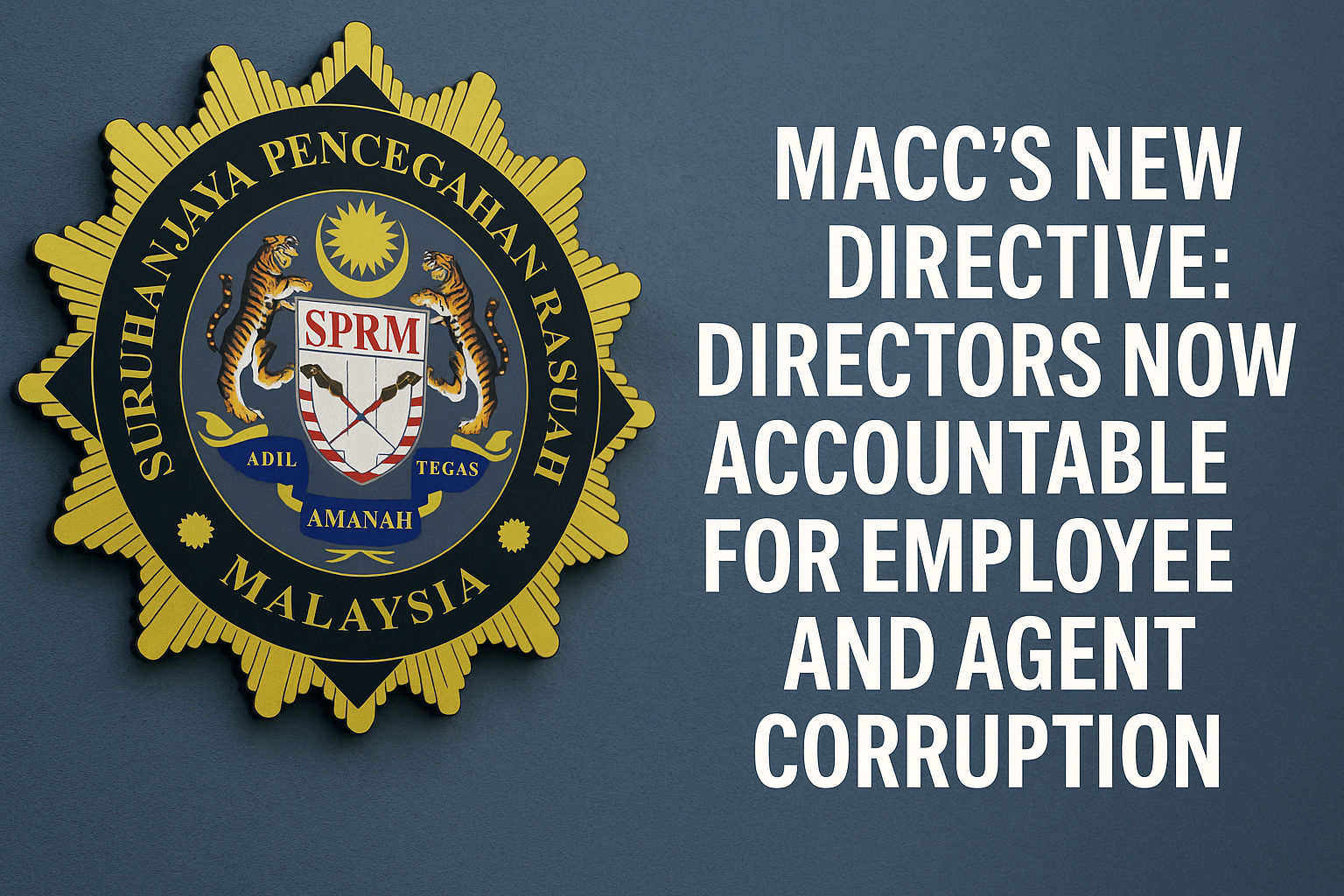In a major step to strengthen corporate integrity in Malaysia, the Malaysian Anti-Corruption Commission (MACC) has begun to actively enforce Section 17A of the MACC Act 2009. This provision on Corporate Liability places a significant new responsibility on the shoulders of company directors and senior management.
Under this law, a commercial organisation can be prosecuted if any of its employees or associated persons (such as agents or contractors) engage in corrupt activities for the benefit of the business. The key takeaway for business owners is this: you can now be held personally liable for the corrupt actions of your team. This makes establishing robust anti-corruption policies not just good practice, but an essential legal defence.
Understanding Section 17A: What is Corporate Liability?
Section 17A establishes that a commercial organisation commits an offence if a person associated with it corruptly gives, agrees to give, promises, or offers any gratification to any person with an intent to obtain or retain business or an advantage for the organisation.
- Who is considered an “associated person”? This is defined very broadly and includes:
- Directors and partners.
- Employees of the company.
- Any person who performs services for or on behalf of the company (e.g., agents, distributors, consultants, contractors).
- What happens if an offence occurs? If found guilty, the penalties are severe. The commercial organisation can be fined heavily. Furthermore, under the law, the company’s directors, controllers, and senior management are deemed to have committed the same offence unless they can prove they took adequate measures to prevent the corruption from happening.
The “Adequate Procedures” Defence: Your Only Protection
The law provides only one line of defence for directors and management: proving that the organisation had in place “Adequate Procedures” designed to prevent corrupt practices.
While the law does not define what “adequate” means, the government has issued guidelines based on the T.R.U.S.T. principles:
- T – Top-Level Commitment: The board and senior management must lead by example, promoting a culture of integrity.
- R – Risk Assessment: The company must regularly assess the risk of corruption in its business operations (e.g., in procurement, sales, or dealing with government bodies).
- U – Undertake Control Measures: Implement practical controls like clear policies on gifts and entertainment, robust payment approval processes, and due diligence on third parties.
- S – Systematic Review, Monitoring & Enforcement: Regularly review the effectiveness of your anti-corruption policies and take action when they are breached.
- T – Training & Communication: Provide regular anti-corruption training to all employees and ensure your policies are clearly communicated.
What This Means for Your SME
This is not just a concern for large corporations. All commercial organisations, including Sdn. Bhd. companies, are subject to this law.
- Ignorance is Not a Defence: You can no longer claim you were unaware of an employee’s corrupt actions. The burden of proof is now on you to show you took active steps to prevent it.
- Review Your Internal Policies: Do you have a clear, written anti-bribery and corruption policy? Do you have a code of conduct for your employees?
- Third-Party Risk is Your Risk: You are responsible for the actions of your agents and contractors. It is now crucial to conduct due diligence on any third party that acts on your company’s behalf.
Building a Foundation of Good Governance
While establishing these “Adequate Procedures” may seem daunting, it starts with a foundation of good corporate governance and financial transparency.
At SMONE, our professional services are designed to build this foundation. Through our Accounting & Bookkeeping services, we help you implement clear financial controls and ensure all transactions are transparent and properly documented. Our Financial Reporting provides the oversight needed for directors to confidently manage their business with integrity.
Don’t wait for a problem to arise. Contact us today to ensure your business’s financial administration supports a culture of good governance and protects you from corporate liability risks.
(Disclaimer)
This article is for general informational purposes and does not constitute legal advice. Please consult with a qualified legal professional to develop anti-corruption policies that are suitable for your specific business.


